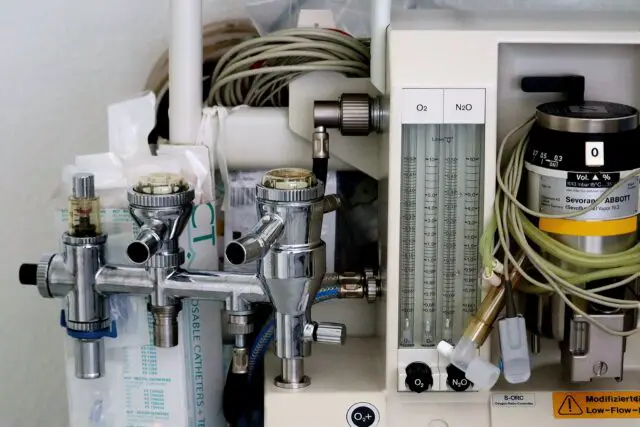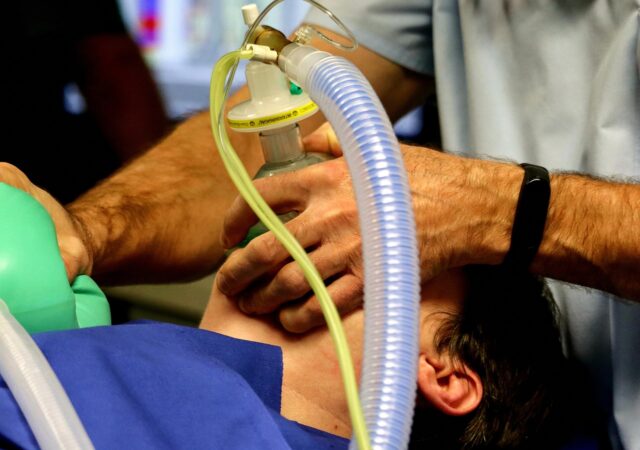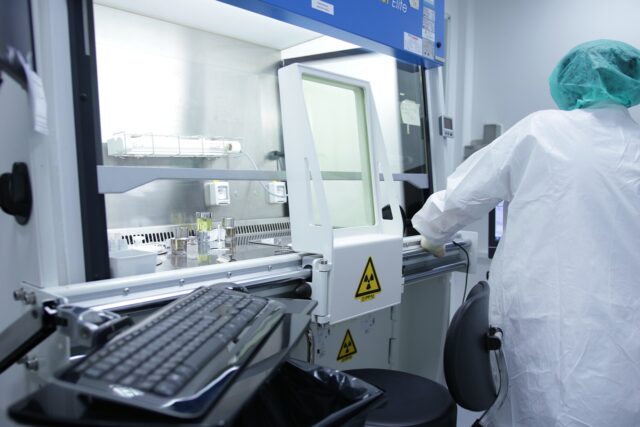In this Anesthesia job description, you’ll see people who choose this career are the unsung heroes of the medical world, offering incredible support and assistance to anesthesiologists and other medical personnel.
Not only can they prepare and operate anesthesia equipment, but they are also able to administer anesthetics and monitor patient vital signs during procedures. They play a vital role in ensuring quality care for patients!
They also ensure that the operating room is properly prepared for procedures and that all necessary equipment is available and in working order. In this field, you must have a strong knowledge of medical terminology and anatomy, as well as an understanding of the proper use of anesthesia equipment.
Anesthesia technicians are an essential part of the operating room team. They play an integral role in providing high-level support and assistance during surgical procedures – invaluable to successful operations!
They must be organized, detail-oriented, and able to multitask in a fast-paced environment. Anesthesia technicians must also be able to stay calm in stressful situations and have excellent communication skills.
What Training Is Required To Become An Anesthesia Technician?
Working as an anesthesia technician requires both educational and practical experience. To get the job, you must have at least a high school diploma or GED, but having a certificate, associate’s or even bachelor’s degree in a healthcare-related field can help increase your chances of being hired.
You must complete specialized training in the use of anesthesia equipment and medications, as well as patient monitoring techniques. This training is usually provided by a hospital or medical facility, or through a formal program.
Following the successful completion of their training program, anesthesia technicians must pass the certification exam to become certified professionals. This certification is key to making sure they are able to provide top-notch services in this field.
What Does An Anesthesia Technician Do?
An anesthesia technician is responsible for a variety of tasks in the operating room. They must set up and operate anesthesia equipment, administer anesthetics, and monitor patient vital signs.
Not only do they help the operation run smoothly, but they also take steps to make sure that the operating room is equipped with all of the necessary tools for a successful outcome. They check each piece of equipment to ensure it is functioning properly and ready to go!
Anesthesia technicians must also be knowledgeable about medical terminology and anatomy, as well as the proper use of anesthesia equipment. They must also be able to troubleshoot any problems that may arise during a procedure and be able to stay calm in stressful situations.
What Are the Benefits of Being an Anesthesia Technician?
Anesthesia technicians can experience a thrilling and ever-changing workplace. Plus, they get to enjoy the feeling of knowing that what they do is helping to make surgeries safe and efficient!
Anesthesia technicians typically have excellent job security and can expect to receive competitive salaries and benefits. They also have the opportunity to advance their careers by obtaining additional training and certifications.
What Are the Challenges?
Anesthesia techs must be professionals who can remain collected in tense situations and juggle multiple tasks quickly. As well as outstanding communication capabilities, they must capacitate troubleshooting any accidents during a procedure.
Anesthesia technicians must also have a strong knowledge of medical terminology and anatomy, as well as an understanding of the proper use of anesthesia equipment. In addition, they must be organized, detail-oriented, and able to think quickly on their feet.
What Qualifications Are Needed To Become an Anesthesia Technician?
If you’re looking to become an anesthesia technician then you’ll need a High School Diploma or GED. That being said, having a Certificate, Associate’s Degree or Bachelor’s Degree in healthcare-related fields can make for a great advantage when applying for the job.
In addition, anesthesia technicians must complete specialized training in the use of anesthesia equipment and medications, as well as patient monitoring techniques. After completing the training program, anesthesia technicians must pass a certification exam to become certified.
What Are the Career Opportunities for Anesthesia Technicians?
Anesthesia technicians are in high demand, with a variety of work settings available such as hospitals, medical facilities, ambulatory surgery centers, and private practices. With excellent job security and competitive salaries and benefits on offer, it is no wonder there is strong interest in this field!
Anesthesia technicians also have the opportunity to advance their careers by obtaining additional training and certifications. Many anesthesia technicians also have the opportunity to specialize in a particular area of anesthesia, such as pediatric, obstetric, or critical care anesthesia.
What Is the Average Salary for Anesthesia Technicians?
The salary for an anesthesia technician varies depending on their experience, the place of work, and other factors. According to statistics, the US has an average median salary of $49,450 per year for this profession! This is a great opportunity to make a good living with a reliable job.
The top 10% earns more than $62,870, while the lowest 10% earns less than $24,880. Pay for Anesthesia Technicians varies depending on experience, location, and employer.
What Are the Different Types of Anesthesia?
Anesthesia is a very versatile tool and comes in different forms — from local to regional, conscious sedation to general anesthesia. Local anesthesia numbs a specific, small area of the body, while regional anesthesia provides numbness to a larger portion of the body.
General anesthesia is used to induce unconsciousness, and conscious sedation is used to relax a patient during a procedure.
Job Outlook for Anesthesia Technicians
An exciting future awaits anesthesia technicians as the demand for healthcare services will be on the rise in the coming decade. Their job opportunities are expected to be plentiful and highly advantageous!
The U.S. Bureau of Labor Statistics (BLS) projects that the employment of Anesthesia Technicians will grow by 8% from 2018 to 2028. This growth is faster than the average for all occupations.





